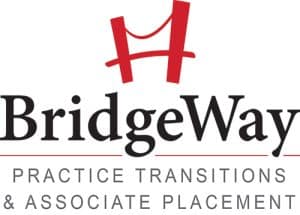5 types of buyers in the market for a dental practice
Curious to know who are buying dental practices right now? Want to know who could potentially buy yours if you were to sell? Here are five types of buyers currently in the market for dental practices.
1. New Buyer
This is the most common buyer. Most first time practice buyers are 5-10 years out of dental school, have been working as an associate in a large practice, and have decided it is time for them to be their own boss. Wanting control over how to treat patients and how to manage the office are the main reasons the new buyer enters the market for their very own practice. Buying a practice for them is like fulfilling a lifelong dream, so finding the right practice is very important to them. They understand that when acquiring a practice, they are acquiring someone else’s family of staff and patients and tend to treat it accordingly.
2. Partnership Buyer
Someone that wants to buy into a practice, instead of buying the whole practice, tends to be a buyer that enjoys collaborating and working as a team. This buyer also likes the idea of another provider in the office to cover for them if they want to take time off. A partnership is like a marriage and it can be very difficult to match up two people that will happily work together for the foreseeable future. Keep in mind, also, that a practice needs to have enough patients to support both providers for this scenario to work out. If the patient base is too small, the new partner will struggle to make a living and pay off the loan that enabled him to buy into the practice in the first place.
3. Merger Buyer
A merger buyer is someone that would like to add more patients to their practice through buying a nearby office and putting the two together. This can happen through the seller’s practice moving into the buyer’s location or vice versa. If the seller is moving to the buyer’s practice, the seller would need to stay on for a year or two to transition the patients to the new location. This is a very smart business decision for the buyer, as the fixed expenses of their practice don’t change but the new revenue can dramatically increase the bottom line.
4. Satellite Buyer
It is common for dentists who enjoy the business side of dentistry to want to own multiple offices. When a dentist is looking to purchase an additional practice, they look for opportunities where the seller is willing to stay on after the sale. This is important because the buyer is probably already working full time in another location or is busy enough managing the business side of the operation. This is a great opportunity for the buyer to grow their portfolio of practices and the seller to fund his pension plan while continuing to practice dentistry on his patients with much less stress.
5. Corporate/DMSO Buyer
The corporate/DMSO buyers are snatching up practices as quickly as possible. Although they are not all the same, what they look for in a practice is very similar. They want a practice with revenues over $800K with the seller willing to work for at least two years after the sale. They also typically want the seller to hold a note for 20% of the purchase price, to be paid out over the two years of post-sale employment. They do this because it is imperative that the seller continue to keep the practice producing until they can at least find a comparable associate. However, they would prefer to have the seller stay on indefinitely.
Every buyer is unique, even within each category. They all have different dreams, desires, and needs. Not all sellers have a strong preference to who buys their practice, but when selling goodwill, most dentists want to make sure their patients are going into good hands. When thinking about your transition plan, put some time into “who” you want to transition your practice to, and not just the price you want to sell it for.
